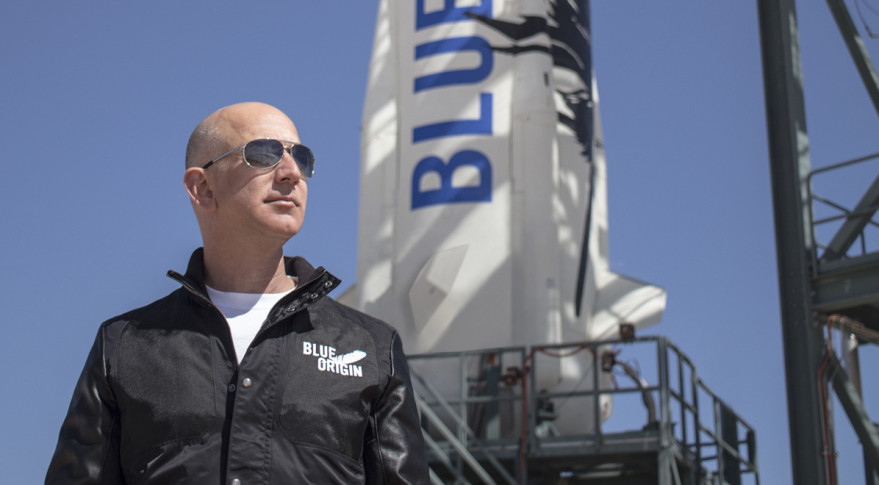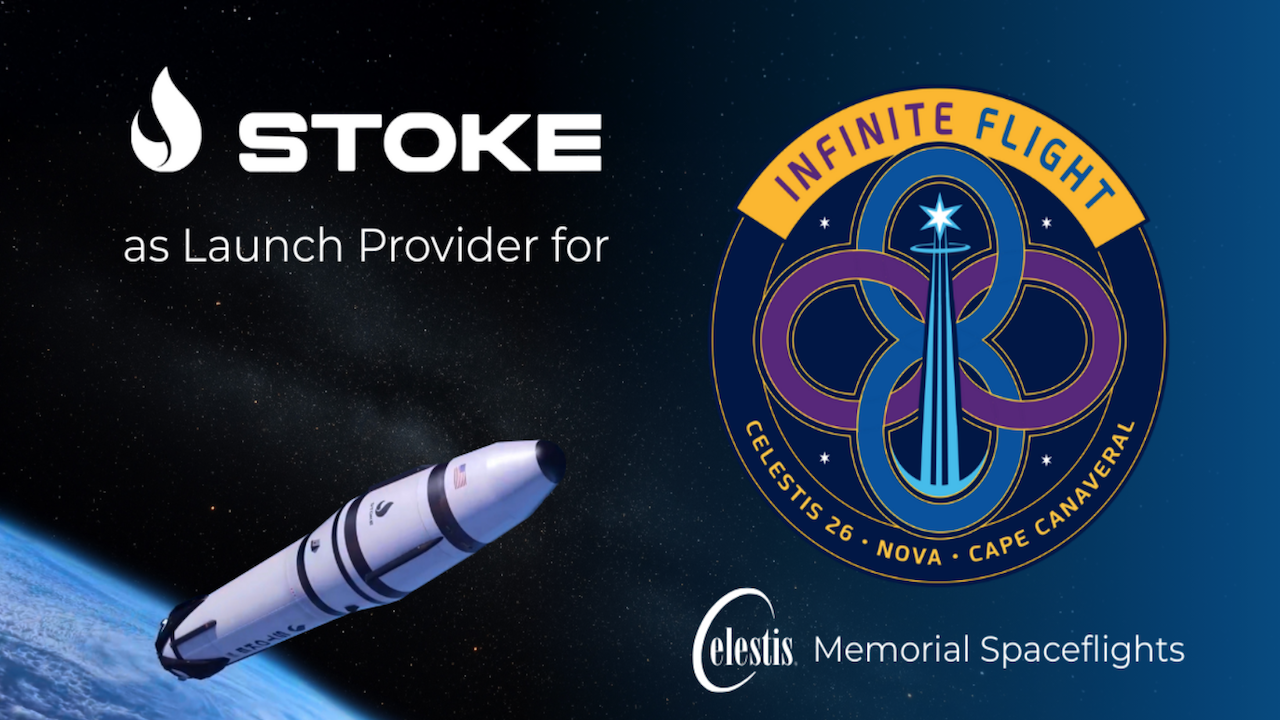Bezos Wins Heinlein Prize Commercial Space Award

SEATTLE — Jeff Bezos, whose commercial space company Blue Origin recently completed another test flight of its New Shepard reusable suborbital vehicle, is the latest winner of the Heinlein Prize for commercial space achievements, previously won by an archrival.
The Heinlein Prize Trust announced June 21 that Bezos will be the third recipient of the prize, established in the name of the late science fiction author Robert A. Heinlein, for his efforts to develop suborbital and orbital launch vehicles to make space more accessible. The award will be formally announced at the NewSpace 2016 conference here.
"Under Jeff's visionary leadership, Blue Origin has developed launch vehicles and a commercially-financed line of engines that pave the way to reusability in space transportation," said Art Dula, trustee of the Heinlein Prize Trust, in a statement. "As a recipient of the Heinlein Prize, we recognize Jeff and the efforts of the Blue Origin team in its development of technologies that could revolutionize the industry and provide commercially-available launch capabilities to a variety of customers."
Blue Origin is currently developing the New Shepard suborbital vehicle, which conducted its latest test flight June 19 from the company's West Texas test site. That flight was the fourth consecutive flight of the same propulsion module, which makes a powered vertical landing and can be reused with only minor maintenance between flights. The company has indicated the vehicle could enter commercial service, carrying people and experiments, as soon as 2018.
New Shepard is also a technology pathfinder for a future orbital launch vehicle. The first stage of that vehicle is designed to land and be reused, and be scaled up to even larger orbital vehicles. That vehicle will built at a new factory at Florida's Cape Canaveral and its first flight is expected around the end of the decade.
That orbital vehicle will use a new engine, designated BE-4, in its first stage. Blue Origin is currently developing that engine for use in both that vehicle as well as United Launch Alliance's new Vulcan launch vehicle. ULA has yet to make a formal decision on whether to use that engine, but has previously acknowledged that it is the frontrunner to power the Vulcan's first stage.
Bezos welcomed the award. "Robert Heinlein inspired millions with his visionary — and incredibly entertaining — stories, and it's an honor for all of us at Blue Origin to receive this award," he said in a statement. "Heinlein foresaw a thriving future with humans throughout the solar system. We won't stop working to make that vision come true."
Breaking space news, the latest updates on rocket launches, skywatching events and more!
Bezos is the third winner of the prize, first awarded in 2006 to Peter Diamandis for establishing the X Prize that stimulated the development of commercial suborbital reusable launch vehicles. The second winner, in 2011, was SpaceX founder Elon Musk for his development of the now-retired Falcon 1.
Musk, like Bezos, is also pursuing reusable launch vehicles, having successfully landed four Falcon 9 first stages on land or on ships for potential reuse. Bezos and Musk have in the past engaged in debates, primarily on Twitter, about the significance of their technical achievements.
The prize comes with a cash award that, while not specified in the announcement, was $250,000 when Musk won the prize in 2011. Any cash prize is likely to be a token award for Bezos, whose net worth is estimated by Forbes magazine to be $62 billion.
The prize also includes a unique award: a "Lady Vivamus" sword from the Heinlein novel Glory Road. A formal prize award ceremony is planned for Sept. 14 in Washington.
Originally published on Space News.

Jeff Foust is a Senior Staff Writer at SpaceNews, a space industry news magazine and website, where he writes about space policy, commercial spaceflight and other aerospace industry topics. Jeff has a Ph.D. in planetary sciences from the Massachusetts Institute of Technology and earned a bachelor's degree in geophysics and planetary science from the California Institute of Technology. You can see Jeff's latest projects by following him on Twitter.
